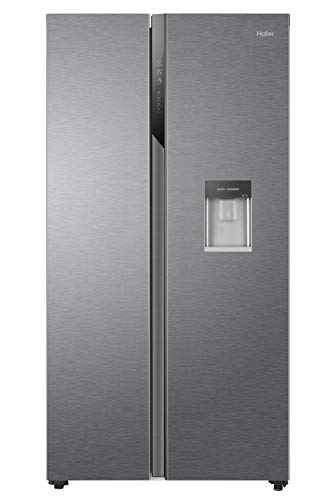The Ultimate Guide to Choosing the Right Refrigerator for Your Home
Introduction
Choosing a refrigerator is a considerable choice for any family. With a wide variety of options readily available, determining the best model for your requirements can be intimidating. This guide will explore different refrigerator types, vital features, and suggestions for making a knowledgeable purchase. Whether you are moving into a brand-new home or simply aiming to change an old model, this info will assist in picking the fridge that best matches your way of life.
Types of Refrigerators
When shopping for a refrigerator, understanding the various types available can simplify the choice procedure. Here's a breakdown of some common refrigerator types:
| Refrigerator Type | Description |
|---|---|
| Top-Freezer | One of the most standard designs, with the fridge area on top and the freezer listed below. |
| Bottom-Freezer | Features the fridge on top for simple gain access to, with the freezer situated below. |
| Side-by-Side | Consists of two vertical compartments; one for the fridge and one for the freezer, allowing more organization. |
| French Door | Combines a bottom freezer with double fridge doors, providing ample area and contemporary looks. |
| Compact | Smaller sized size suitable for minimal areas or secondary cooking areas. |
| Smart Refrigerator | Equipped with sophisticated technology for connection and benefit, including touch screens and internal video cameras. |
Picking Your Refrigerator Type
- Area Availability: Measure the space where you plan to place the refrigerator, thinking about door openings and clearance.
- Storage Needs: Think about your usual grocery shopping practices and meal preparation.
- Style Preferences: Consider the kitchen area's aesthetics-- modern, traditional, or minimalist.
Secret Features to Consider
Apart from type, numerous features make fridges more practical and user-friendly. Here are key considerations:
- Energy Efficiency: Look for Energy Star-rated designs that consume less electricity, saving you money in the long run.
- Capability: Measured in cubic feet, guarantee the fridge's capability meets your household needs. A good general rule is 4-6 cubic feet per adult.
- Adjustable Shelving: Shelving that can be moved or customized to accommodate bigger items can be extremely helpful.
- Humidity Control: Many fridges come with crisper drawers that control humidity, improving the longevity of fruits and veggies.
- Water and Ice Dispensers: Added convenience for those who require simple access to drinking water and ice.
- Smart Home Integration: Consider if you desire a fridge that gets in touch with your clever home devices for added performance.
Benefits and drawbacks of Refrigerators with Ice and Water Dispensers
| Pros | Cons |
|---|---|
| Convenience of having ice and water readily available | Prospective for leaks or upkeep issues |
| Conserves space on kitchen counters for water pitches | Greater initial purchase expense |
| May boost home resale value | Requires access to plumbing |
Budgeting for Your Refrigerator
Establishing a budget is important when choosing a refrigerator, as prices can vary significantly based upon brand, type, and functions. Here's a breakdown of the common price varieties:
| Refrigerator Type | Price Range (GBP) |
|---|---|
| Top-Freezer | ₤ 400 - ₤ 1,000 |
| Bottom-Freezer | ₤ 600 - ₤ 1,500 |
| Side-by-Side | ₤ 800 - ₤ 2,500 |
| French Door | ₤ 1,500 - ₤ 3,000 |
| Compact | ₤ 150 - ₤ 800 |
| Smart Refrigerator | ₤ 1,500 - ₤ 5,000 |
Tips for Sticking to Your Budget
- Do Your Research: Compare costs across different retailers.
- Search for Deals: Shop during holiday sales or clearance events.
- Focus on Features: Determine which functions are necessary vs. great to have.
Frequently Asked Questions (FAQs)
1. For how long do refrigerators usually last?
Most fridges have a life expectancy of around 10-20 years, depending upon use and upkeep.
2. Should I invest in a smart refrigerator?
If you prioritize connectivity and benefit, clever models might be worth it. Nevertheless, consider the higher upfront costs and prospective upkeep.
3. What maintenance does a refrigerator require?
Routine cleansing of coils, inspecting door seals, and defrosting freezers (if essential) are crucial for keeping a refrigerator's performance.
4. How do I know if I'm choosing the ideal size for my refrigerator?
Think about home size, storage requirements, and available kitchen area space. Follow the general guideline of 4-6 cubic feet of area per grownup.
5. raybanez.top -efficient refrigerators worth the investment?
While initial expenses may be greater, energy-efficient designs can conserve you cash on utility costs gradually.
Selecting the best refrigerator includes assessing different aspects, including type, features, cost, and your specific requirements. Comprehending the distinctions between designs and considering factors such as energy effectiveness will assist you make an informed decision. By following this guide and making use of the offered contrasts and pointers, you will be well-equipped to find a refrigerator that suits your cooking area and improves your every day life.
In conclusion, the ideal refrigerator not just keeps your food fresh but likewise matches your home's looks and performance. Take your time in making this essential decision to ensure you pick a model that best serves your requirements for years to come.

